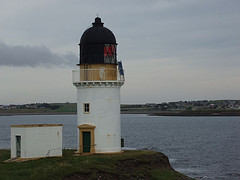In analysis, I perceive a shift in policy towards smaller scale projects, and not exclusively wind energy. Other forms of renewable energy are also advocated. Naturally, the planning argument will be used to counter-act the location aspect, mentioned in the petition.
"We the undersigned petition the Prime Minister to withdraw all subsidies and support to on-shore wind farms in valued landscapes."
Details of petition:
"We agree with the need to find methods to prevent climate change affecting our environment but this must be done with the full support of the public. No attempt can be successful if it destroys the very environment that we hope to save. We call for support for renewable energy projects that are NOT divisive in nature. We call for greater subsidies to small/personal micro-generation schemes such as solar heating. The major mechanism for reduction in CO2 and other greenhouse gasses must be responsible cooperation with the public, NOT imposition of unwanted areas of policy that threaten many households. On-shore wind farms may (when subsidised with public funds) provide large profits to multi-national corporations but their contribution to CO2 reduction is small when weighed against the savings that are possible IF the public feel that they are part of the solution and not having to fight against it!"
Reply from the Prime Minister
The onshore wind industry does not receive any direct grant subsidy or support above that available under the Renewables Obligation (RO). The RO is a mechanism that allows for renewable energy generators to receive a premium for every Megawatt of electricity generated. The UK has one of the best wind profiles in Europe, with the potential to supply a significant portion of our energy needs. Wind energy currently offers the best, and most cost-effective, potential in the short to medium term for the expansion of renewables. However, all proposed wind developments must take place within the formal planning procedure, which allows all relevant stakeholders to have their view and assess all relevant impacts on the environment, local community etc.
The Government remains committed to renewable energy, and has put in place a substantial framework to encourage its development. The Energy White Paper Our energy future - creating a low carbon economy sets out a clear strategy to reduce harmful emissions over the next 50 years with a major expansion of renewable energy and energy efficiency at its heart. It sets out four goals for the Government's energy policy: to work towards cutting emissions of carbon dioxide by some 60 per cent by around 2050; to maintain the reliability of energy supplies; to promote competitive energy markets in the UK and beyond; and to ensure that every home is adequately and affordably heated. It is within this wider context that the development of renewables takes place.
In March 2006 Government published the microgeneration strategy which contains a number of measures to address some of the wider barriers preventing the development of a sustainable market in microgeneration. These include measures to tackle upfront costs, including to help microgenerators gain better access to the rewards for generating electricity e.g. easier access to Renewable Obligation Certificates and improved rewards for electricity exported to the grid. In last weeks Budget a 50% increase in funding for householders to install small scale renewables such as micro wind turbines and solar panels was announced. This will take the total available under the Low Carbon Building Programme to more than £18million. At the same time the scheme is to be re-shaped to make best use of the extra funding. Proposals will be brought forward in May.
The Government has also committed over £500m to help develop emerging renewables and low carbon technologies in the period 2002 - 2008. Beyond that, a new joint Defra/DTI Fund, the Environmental Development Fund, has been set up that will provide a boost to investment in renewable energies and other green technologies aimed at reducing carbon emissions. Final details of the scale and scope of the Fund will be announced in the Spending Review.
Department for Trade and Industry (opens in new window)Department for Environment, Food and Rural Affairs (opens in new window)











I signed this Guido and got a reply in my mailbox. I have yet to read and digest all of it. Probably will do tomorrow when I am less tired and can take it all in. Jeanie
ReplyDeleteIf I would add anything, it would be how fortunate to live in a country where they actually respond to you. (Hugs) Indigo
ReplyDeleteI'm impressed that the PM took the time to have his office send answers to the petioners. This is democracy operating, the real exchange of information and ideas between government and constiuents.
ReplyDeleteIt looks like The United Kingdom has the US beat with renewable energy plans. Our govenment must pull itself together and face the reality that CO2 MUST be reduced in our lifetime, not in a decade or on someone else's watch. It must be addressed now.
Sam